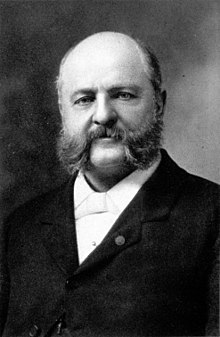Have We Escaped Comstockism?
While it is impossible to deny the prevalence of the “Victorian prude” during the 1800s, this week’s readings made it clear the image was not embraced by everyone of 19th century America. It also shed light on many similarities of sexual discourses from then to now. It made me question if and how much we’ve departed from embarrassment over sexuality and desire to keep it out of the public square. It also further solidified the misconceptions of our hindsight of this era. As Battan puts it: “this reaction [that explicit sexual language was out of place] is primarily the result of a gap in our understanding of the diversity of the sexual culture of nineteenth-century America.” (253)
There was an incredible amount of diversity with regards to the discourse of sexuality, not unlike how it is today. Some were like Alice Baldwin, completely comfortable discussing sex in the most explicit terms. Others preferred to use more euphemistic language. And others, like Mary Smith, preferred to stay more reserved in expressing her sexual desires. There has never been some sort of dictatorship over how one must act with regards to the discourse of sex and sexuality. Rather, there has been a long-running series of power relations that exhibit a Newtonian “every action has an equal and opposite reaction” involving both censorship and freedom.

This man doesn’t like what you’re saying…
However, if anyone came close to creating a dictatorship using his power, it was Anthony Comstock. His ability to singlehandedly control and encourage so much censorship in America is both shocking and fascinating. Upon doing more research, there is still very little out there with regards to why exactly he was so motivated to censor. Was he determined to be a “do-gooder”? Was he afraid of his own sexuality? Did he use censorship as a way to gain personal power for himself? His actions inspire a lot of questions worth examining for our future discussions.
This made me think about our society’s response to sexual public discourse today. There seems to be a lot of gray areas—fifty shades of it, perhaps. Fifty Shades of Grey is widely available to people of all ages, and yet there are countless novels that are banned in schools because they contain sex or sexuality. This year’s Superbowl included a multitude of commercials using explicit sexual images (GoDaddy, anyone?) with little to no backlash, and yet the Janet Jackson/Justin Timberlake debacle racked up numerous fines and prompted much heavier censorships from the FCC. The Free Lovers and others who advocated for education over silence stir up images of the abstinence versus information debate with regards to sex education in the US—even though it has been proven that the states with minimal or no accurate sex education are also home to the highest teen pregnancy rates.
There are a lot of mixed signals here, and I think this is a result of the never-ending power struggles between the Comstocks and the Free Lovers of any and every era. What comes out of it all is a sort of confusingly enticing environment where we are all somehow blatantly sexualized and subdued—we have become both the prude and the prostitute, interlocked in an endless power cycle.
Tags: Battan, Comstock, Discourse, Peiss, Power-Relations, sex, Sexuality

March 5th, 2013 at 2:19 pm
You make some excellent points, Nadia, when you juxtapose the widespread availability of books like Fifty Shades of Grey with the FCC censorship repercussions after the Justin Timberlake Super Bowl debacle. However, it seems in those two cases that the issue is not so much the discussion of sexuality, but the ability of younger children to stumble across these situations, thereby receiving a sexual education that may differ from that which their parents wished to impart to them. This begs the question of what popular culture should or should not be monitored: those underage seventeen are not allowed into R- rated movies without an adult present, and NC-17 ratings require that no one under the age of seventeen may purchase a ticket. Yet there are no age restrictions for purchasing books with risqué material, such as the popular BDSM book Fifty Shades of Grey. It is curious to note why these age restrictions do not extend to novels, and whether they will sometime in the near future.
March 5th, 2013 at 3:01 pm
You make an interesting point about how some of these controversies involve the sexual education/exposure that younger children receive by viewing/reading them. I think this plays into the idea of children being “innocents”, which (as we’ve discussed in class) is not really entirely accurate. I also think it is yet another power relation out there between parent and child and environment and child. Parents want to control what they’re children are exposed to by monitoring what they read/watch, but with the rise of the internet and personal communication devices I think this is becoming harder and harder for parents to do. I agree that it will be interesting to see if age limits stretch to books now that novels like 50 Shades are getting so much attention.